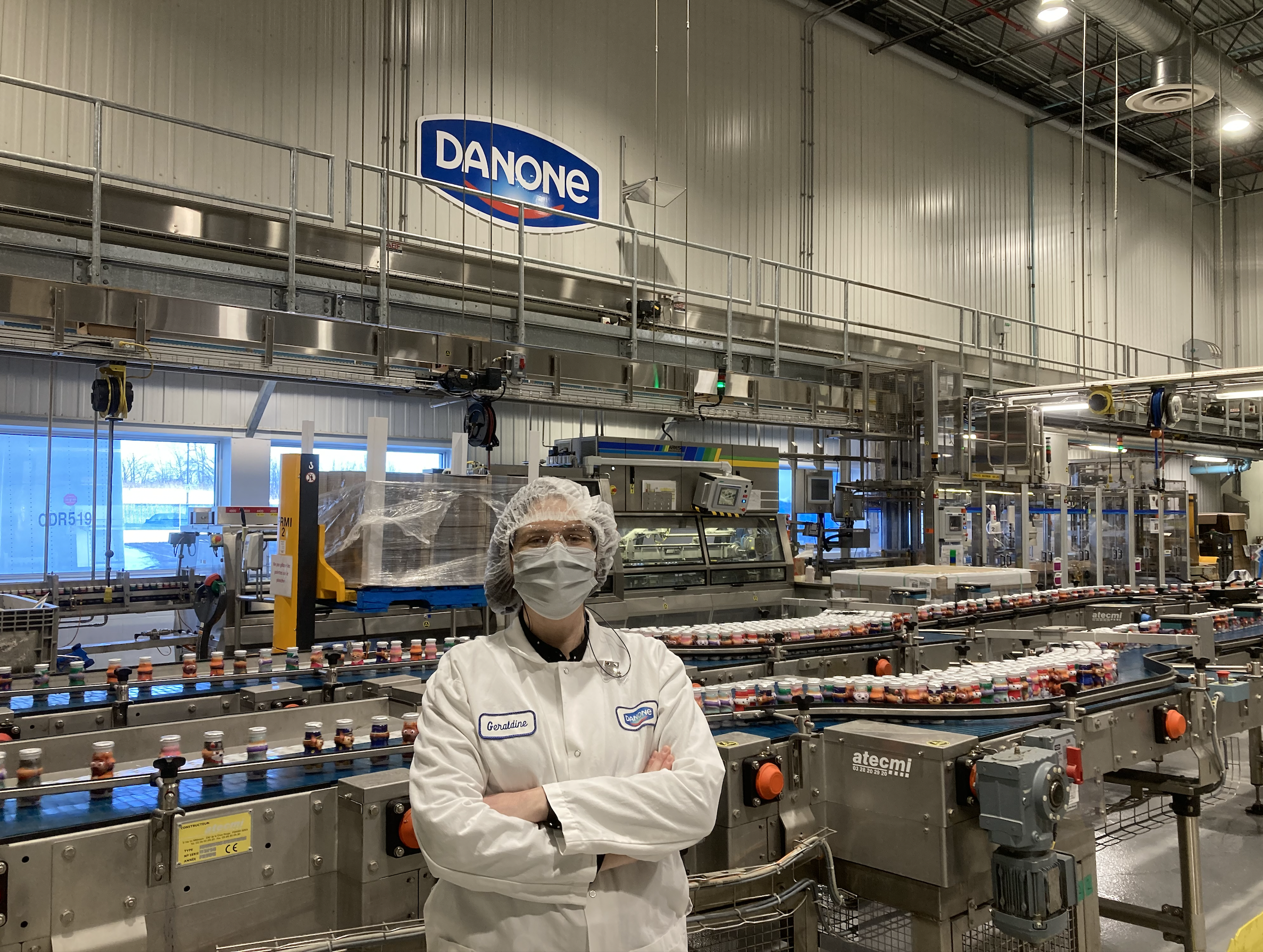
Women in Manufacturing: Q&A with Géraldine Moret at Danone Canada
by Madalene Arias

Moret discussed the promotion of diversity, equity and inclusion within manufacturing as well as ways to mitigate the challenge of labour shortages in 2022.

Géraldine Moret, Factory Director at Danone Canada.
Geraldine Moret is an industrial engineer from France. Earlier in her career she spent some time in Canada where she studied at Polytechnique Montréal and then launched her career with L’Oréal.
Moret said she has spent most of her manufacturing career in supply status, 15 years of which were devoted to training, logistics, customer service and planning. She lived in Argentina for six years with her family where she handled operations as factory director in Danone’s Buenos Aires facility.
She transferred from Argentina to Montreal in 2020 and has served as factory director for Danone throughout the coronavirus pandemic.
Moret said her family and her career are her top priorities and that she loves the industrial sector, not because she is a technical expert but because she recognizes that the greatest engine in a factory is the team of people.
She shared some of her time with Canadian Manufacturing to discuss the promotion of diversity, equity and inclusion within manufacturing as well as ways to mitigate the challenge of labour shortages.
Q: What limitations exist for women in manufacturing?
A: I personally have never had to face any limitation. I see women sometimes putting on themselves some limitations often for issues of confidence. I also suffer from a lack of self-confidence. That’s why it’s key to have a great manager to push you and encourage you.
I will speak about Danone; there is no limitation for a woman. You may imagine that being a woman with a kid and so on that that could be an issue. I think that hopefully, and again, I will speak of my own experience at Danone, we are at maturity of adapting flexibility regarding the different constraints. But I imagine that for some women it may be a definite internal limitation. I think that most of the limitation could come from not knowing what we can do and discuss it.
Q: I understand you do some work to inspire women to work in manufacturing. Can you tell me more about that?
A: I have done some mentoring programs inside Danone with the people in the company, with the younger, talented women in the world of operation. Some in Argentina, some in France, in Romania, some here in Canada to show that it’s not that it’s possible but that it’s the reality today. We have the chance now. It’s a reality for women now. So let’s push women or young ladies who have potential and give them confidence and give them opportunities.
Q: Can you tell us about Danone’s diversity and inclusion efforts?
A: When we receive curriculums, we don’t have so many women. That’s why I think it’s key to work on the source, to work in the university and with young ladies to open a bit more of the flow of potential and also give them the motivation to continue in the industry.
How do we manage diversity in Danone? I have been with the company for 17 years. I have had the chance to see Danone really embrace diversity. For example, here in Canada we have something called LIFT which is a program that tries to lead and inspire female talent in operation and in all the company with awards. Last year the LIFT award was given to one of my youngest female talents. She was a supervisor, so really proud of that.
We really want to continue to embrace diversity with all the other employees, not just women but also minority communities. We are a big company, so it’s really important that we put people at the centre of our occupation and in the centre of our strategy. The same in the factory, really, doing things for the people and with the people and putting the operator in the heart of the factory.
Q: How do you see the labour shortage playing out in 2022? And has Danone experienced any side effects from this? And what are some of the challenges in attracting talent and in today’s market?
A: It’s a day to day preoccupation. For me, the key point is recruitment. I think that in Danone, we are lucky that we have —ah, it’s not luck. It has been a long term strategy to have really good working conditions. It’s key to attract talent and also give them flexibility and a purpose. Today, with a new generation, I would say that on top of salary and compensation and benefits, something that is key to attracting young women, men or whomever is to give them a purpose, to give them an inspiring vision and make them part of the strategy.
This article has been edited for length and clarity.